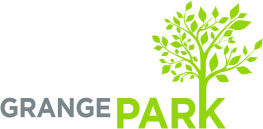Children & Young People
There are a number of people available to talk to:
Call the Children and Young People SARC 0808 196 2340
Website www.westmidscyps.co.uk
Call 999 – If you think that a child is in immediate danger
Childline – If you a child or young person who needs help, you can call Childline on 0800 1111
NSPCC – You can call 0808 800 5000 to discuss your concerns with the 24 Hour Child Protection Helpline
We know how hard it can be to tell someone that you have been raped or sexually assaulted.
Rape and sexual assault can happen to anyone.
If you have been raped or sexually assaulted it is important to speak to someone about the assault as soon as possible in order to get the support you need. Talk to someone that you trust and feel safe with, such as a parent, family member, friend, friends parent or teacher.
You have a right to confidentiality. However, if the people you talk to are worried about your safety they might need to speak to a doctor or social worker. They will talk about this with you so you have the chance to let them know how you feel about it. They should take any worries you have seriously.
If you want to speak to us anonymously that’s fine.
It is important for you to know that if we have your name and contact details we may need to tell the authorities about what has happened because you are under 18. This is so that they can make sure you are now safe and help you if you are not safe.
If we do not have your name and contact details we are unable to pass on information. However, we can still help you to think about your sexual health, emergency contraception, how to get to safety and getting support to help you start to feel better. We can also explain what is likely to happen if you decide to tell the police.
Child sexual exploitation is a form of child sexual abuse. It occurs where an individual or group takes advantage of an imbalance of power to coerce, manipulate or deceive a child or young person under the age of 18 into sexual activity (a) in exchange for something the victim needs or wants, and/or (b) for the financial advantage or increased status of the perpetrator or facilitator. The victim may have been sexually exploited even if the sexual activity appears consensual. Child sexual exploitation does not always involve physical contact; it can also occur through the use of technology.
Like all forms of child sexual abuse, child sexual exploitation:
- Can affect any child or young person (male or female) under the age of 18 years, including 16 and 17-year-olds who can legally consent to have sex;
- Can still be abuse even if the sexual activity appears consensual;
- Can include both contact (penetrative and non-penetrative acts) and non-contact sexual activity;
- Can take place in person or via technology, or a combination of both;
- Can involve force and/or enticement-based methods of compliance and may, or may not, be accompanied by violence or threats of violence;
- May occur without the child or young person’s immediate knowledge (through others copying videos or images they have created and posting on social media, for example);
- Can be perpetrated by individuals or groups, males or females, and children or adults. The abuse can be a one-off occurrence or a series of incidents over time, and range from opportunistic to complex organised abuse; and CSE is typified by some form of power imbalance in favour of those perpetrating the abuse. Whilst age may be the most obvious, this power imbalance can also be due to a range of other factors including gender, sexual identity, cognitive ability, physical strength, status, and access to economic or other resources.

